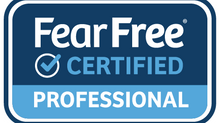So your dog got skunked?
- Sep 13, 2022
- 2 min read

So, your dog just had an encounter with a skunk and got sprayed for his troubles. Although your first instinct may be to let him in the house to wash him off, don’t. Keep him outside. The skunk oil on his coat lingers in the air until he’s clean, and we all know how stinky that smell is!
What is skunk spray? The spray is produced by the anal glands of the skunk to defend against predators and contains sulfurous chemicals called thiols. Since skunks can spray this liquid as far as 15 feet, it’s common for dogs to get a blast directly in the face.
Nature's Miracle products work the best in our experience. Locally they are sold at Smithfield/Dave’s, Walmart, Petco and others. Skunk odor becomes more pungent when the animal becomes wet unless you use an enzyme cleaner.
Homemade recipes involve a combination of hydrogen peroxide, baking soda, and dish detergent in varying amounts; the most common is 3-4 parts hydrogen peroxide to 1 part of baking soda, with a teaspoon or so of dish detergent added.
The dish detergent breaks down the oil so that it can be washed away, while the hydrogen peroxide and baking soda act as oxidizing agents, changing the chemical structure of the thiols into odorless sulfonic acid compounds. To be effective, the solution must be used while 'fresh', or still bubbling, and must be applied directly to the sprayed areas.
Never use solutions that contain peroxide near the eyes, and you must be very cautious about applying them in the mouth. You need to be aware that the peroxide may bleach your dog's fur, and this is especially noticeable if your dog is black or dark brown. Also, the peroxide can bleach any material it may come in contact with (such as your clothes or furniture).
When using the homemade product, it is common to notice the 'eau de skunk' smell every time your dog gets wet over the next few months. This rarely occurs when a commercial odor eliminator is used correctly.





























Comments